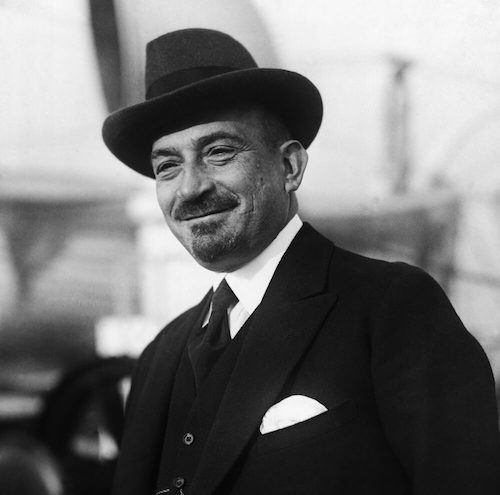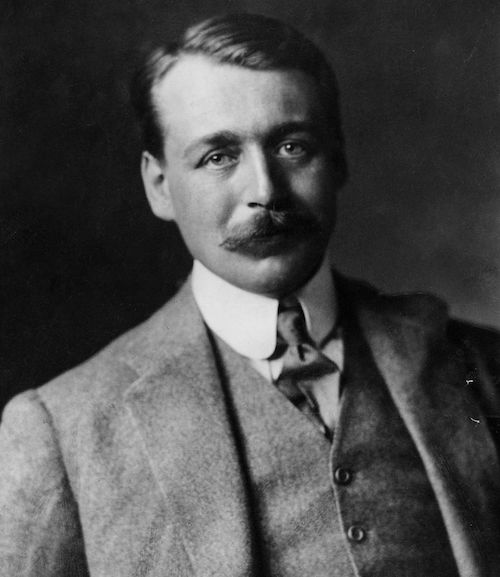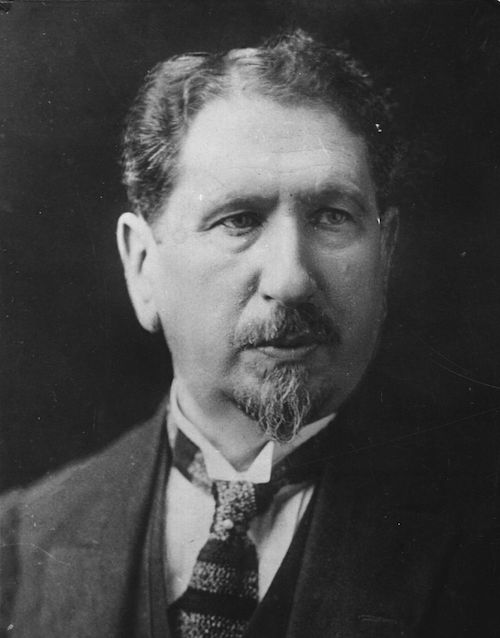This week, Palestinians around the world are marking 100 years since the Balfour Declaration was issued on November 2, 1917.
The Balfour Declaration was a public pledge by Britain, declaring its aim to establish "a national home for the Jewish people" in Palestine.
The statement came in the form of a letter from Britain's then foreign secretary, Arthur Balfour, addressed to Lionel Walter Rothschild, a figurehead of the British Jewish community.
But the declaration was by no means formulated and decided upon overnight - rather, it had been in the works for years, involved many people and was drafted numerous times before being sent out.
The pledge is generally viewed as one of the main catalysts of the ethnic cleansing of Palestine in 1948 and the creation of the Zionist state of Israel.
Arthur Balfour
Birth: Scotland, 1848
Death: England, 1930
Arthur Balfour, who first served as prime minister of the United Kingdom, and more importantly, later as foreign secretary during the government of David Lloyd George, is the author of the declaration.
Balfour, an English aristocrat, is credited with convincing the War Cabinet to issue the statement and with asking Chaim Weizmann and Lord Rothschild to draft it.
His colonial mindset could best be demonstrated with the following statement, which he made in a 1919 memorandum:
“In Palestine … we do not propose even to go through the form of consulting the wishes of the present inhabitants of the country. Zionism, be it right or wrong, good or bad, is rooted in age-long traditions, in present needs, in future hopes, of far profounder import than the desires of the 700,000 Arabs who now inhabit that ancient land.”
His niece, Blanche Dugdale, who worked in the London office of the Jewish Agency with Chaim Weizmann, indicated that Balfour was a Christian Zionist in her autobiography: “Balfour’s interest in the Jews and their history was lifelong, originating in the Old Testament training of his mother, and his Scottish upbringing.”
But others argue that Balfour was an anti-Semite and that his interests in the Zionist project were merely for British strategic gains.
Before he resigned as prime minister, Balfour pushed for the 1905 Aliens Act, believed to have been an attempt at curbing Eastern European Jewish immigration to Europe, though it did not explicitly state that.
Lionel Walter Rothschild
Birth: England, 1868
Death: England, 1937
A descendant of the powerful Jewish Rothschild banking family, Walter Rothschild was a Zionist and a close friend of Chaim Weizmann.

Though he retired from parliament by 1910, he remained active as a figurehead of the British Jewish community and served as the president of the English Zionist Federation. He was the recipient of the Balfour Declaration.
In the summer of 1917, Arthur Balfour asked Rothschild and Weizmann to draft a statement that would be in line with Zionist goals.
The original draft sent by Rothschild to Balfour proposed that “Palestine should be reconstituted as the national home of the Jewish people”. But following objections within the cabinet, the wording was made vague.
His lobbying efforts alongside Weizmann and other Zionists, both within and outside of the British government, were central in pressuring the government to issue the declaration.
Chaim Weizmann
Birth: Russian Empire (Now Belarus), 1874
Death: Israel, 1952
Chaim Weizmann, who later became the first president of Israel, was a Russian Zionist and chemist who was arguably the most influential figure in procuring the Balfour Declaration.

While Theodore Herzl was referred to as the “father of political Zionism”, Weizmann was viewed as the one who put the plan into action.
After receiving a doctorate in chemistry in Switzerland, he went to England and took up work as a scientist with the British government during the first world war (WWI).
His contributions, mainly developing a process to produce synthetic acetone for explosives, made him well connected to the upper echelons of the British government, including former Prime Minister David Lloyd George, then foreign secretary Arthur Balfour and diplomat Mark Sykes.
In his autobiography, Lloyd George reportedly wrote that the Balfour Declaration was offered to Weizmann, who became a British citizen, as a reward for his contribution to the war effort.
At Balfour’s request, Weizmann and Lord Rothschild drafted the Declaration in a manner that would suit Zionist interests.
Weizmann lobbied hard for more than two years to publicly commit Britain to building a state for the Jews in Palestine. He argued that a Jewish state was in the interest of England.
In a 1914 letter to the Manchester Guardian, now known as The Guardian newspaper, Weizmann wrote:
"Should Palestine fall within the British sphere of influence, and should Britain encourage a Jewish settlement there, as a British dependency, we could have in 20 to 30 years a million Jews out there - perhaps more; they would develop the country, bring back civilization to it and form a very effective guard for the Suez Canal."
The colonial undertones in his views are evident. In his first visit to Palestine in 1907, he is quoted as describing the country as follows: “a dolorous country it was on the whole, one of the most neglected corners of the miserably neglected Turkish Empire … Neither the colonies nor the city settlements in any way resembled, as far as vigor, tone and progressive spirit are concerned, the colonies and settlements of our day.”
Weizmann is also credited with the famous quote in 1919 in which he said: “By a Jewish National Home I mean the creation of such conditions that as the country is developed we can pour in a considerable number of immigrants, and finally establish such a society in Palestine that Palestine shall be as Jewish as England is English, or America American."
David Lloyd George
Birth: England, 1863
Death: Wales, 1945
The prime minister in the coalition government between 1916 and 1922, David Lloyd George’s government issued the Balfour Declaration.

He created the War Cabinet to make major strategic decisions and made sure that the Zionist project was on the agenda.
Lloyd George is quoted as saying: “I was taught far more history about the Jews than about the history of my own people.”
He was convinced that Palestine had to come under British rule and acted on this accord.
In his memoirs, Lloyd George listed a multitude of reasons as to why he supported Zionism, including a desire to attract Jewish financial resources, Christian Zionist beliefs, the Jewish lobby in Britain, and sympathy with Jews facing anti-semitism.
He reportedly wrote that he offered the Balfour Declaration to Chaim Weizmann as a reward for his contribution to the war effort, but some historians challenge that notion.
Prior to serving as prime minister, Lloyd George worked closely with Theodore Herzl, the “father of political Zionism,” on the Uganda scheme - a plan to resettle the Jews in Uganda under British auspices.
During the war, Lloyd George advised the British military commander Edmund Allenby to occupy Jerusalem before the holidays. When the British entered Jerusalem in December 1917, Lloyd George described it as “a Christmas present for the British people”.
Herbert Samuel
Birth: England, 1870
Death: England, 1963
Herbert Samuel is said to be the first Jewish Cabinet minister in England in 1909.

In 1914, Samuel, an ardent Zionist of German origin, suggested that “perhaps there might be an opportunity for the fulfilment of the ancient aspiration of the Jewish people and the restoration there of a Jewish State,” in a discussion with the secretary of state for foreign affairs, Edward Grey.
A few weeks later, Samuel presented a memorandum titled The Future of Palestine, to the British Cabinet, proposing a Jewish commonwealth, but then Prime Minister HH Asquith did not find his proposal enticing.
“He thinks we might plant in this not very promising territory about three or four million European Jews” as a solution to anti-Semitism, Asquith wrote.
In a revised memorandum, Samuel said the British government should enable Jewish immigration “so that in the course of time the Jewish inhabitants, grown into a majority and settled in the land, may be conceded such degree of self government”, which he said “would win for England the gratitude of the Jews throughout the world”.
He also believed it was in the interest of Britain to install a friendly power near the strategic Suez Canal.
Samuel worked closely with Chaim Weizmann and advised him on how to further Zionist aims in government circles.
In 1918, his son, Edwin, was appointed as an officer of the Zionist Commission in Palestine, a group chaired by Weizmann and created to advise the British government on how to implement the Balfour Declaration.
Samuel was chosen by then Prime Minister David Lloyd George to be high commissioner, the highest source of authority, in Palestine, from 1920 to 1925. He was described as the “first Hebrew Governor of Jerusalem for over 2,000 years”.
Though he expressed on several occasions his fears that a Jewish state may harm the Palestinian Arab majority in the country, many criticised his actions in creating policies meant to allow Jews to flourish.
For example, he appointed Zionists to the top posts of his administration, while Palestinians were robbed of the right to create their own autonomous para-state structures.
Mark Sykes
Birth: London, 1879
Death: Paris, 1919
Known for coauthoring, along with Francois Georges-Picot, the infamous Anglo-French deal to divvy up the Middle East after WWI, Mark Sykes’ involvement in the Balfour Declaration is often overlooked.

While his support for the Zionist project came late, Sykes served as a key channel between Chaim Weizmann and his fellow Zionist activists, and the British government.
He served as an assistant secretary in the War Cabinet to oversee Middle Eastern affairs and was convinced that a Jewish settlement in Palestine would ensure British imperial interests and minimise French influence there.
Sykes was highly involved in the negotiations that led to the Declaration.
He is credited with directing Nahum Sokolow, a Polish Zionist and diplomat, to convince the French to accept bringing Palestine under British control after the war and arranged for him to meet with the Papal authorities in Rome.
In his autobiography, Weizmann wrote that Sykes, at a meeting with a group of Zionists in 1917, said that the “idea of a Jewish Palestine had his full sympathy”.
On October 31, 1917, the Cabinet approved the final wording of the Declaration. Sykes was said to have emerged, calling “Dr Weizmann, it’s a boy!”
Nahum Sokolow
Birth: Poland, 1859
Death: London, 1936
A Polish writer and diplomat, Nahum Sokolow is a lesser-known key player in the Balfour Declaration, though his behind-the-scenes work had a major impact on the issuing of the statement.

A close aide of Chaim Weizmann, he travelled widely to rally support for the Declaration. He was reported to have met with Supreme Court Justice Louis Brandeis in the United States and Pope Benedict XV in the Vatican.
He also secured support from the French and Italians, the Allied powers in WWI, for Zionist aspirations before the Declaration was issued.
Under the 1916 Sykes-Picot treaty to divide the Middle East after the fall of the Ottoman Empire, the majority of the land of Palestine was meant to become an international zone. But in coordination with Mark Sykes, Sokolow, as a representative of the Zionists, fostered the view that the Jews preferred British over French protection in Palestine.
Most notably, he met with high profile French officials in May 1917 and managed to secure French support for the plan, as expressed in the Cambon Letter.
The letter, addressed from Jules Cambon, the secretary-general of the French foreign ministry, to Sokolow, expressed the French government’s sympathy towards “Jewish colonization in Palestine”.
“It would be a deed of justice and of reparation to assist, by the protection of the Allied Powers, in the renaissance of the Jewish nationality in that Land from which the people of Israel were exiled so many centuries ago,” the letter, which was seen as a precursor to the Balfour Declaration, stated.
Sokolow later became the president of the World Zionist Organization for a short period of time.